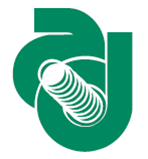Speaker
Mr
Mohammed Imran Ahmed
(AGH University of Science and Technology, Faculty of Physics and Applied Computer Science)
Description
The development of integration type pixel detectors presents interest for physics communities because it brings optimization of design, simplicity of production - which means smaller cost, and reduction of detector material budget. During the last decade a lot of research and development activities took place in the field of CMOS Silicon-On-Insulator (SOI) technology resulting in improvement in wafer size, wafer resistivity and MIM capacitance. Several ideas have been tested successfully and are gradually entering into the application phase. Some of the novel concepts exploring SOI technology are pursued at KEK; several prototypes of Dual mode Integration type PIXel (DIPIX) have been recently produced and described. This report presents initial test results of some of the prototype including tests obtained with the infrared laser beam and Americium (Am-241) source. The Equivalent Noise Charge (ENC) of 85e- has been measured. The measured performance demonstrates that SOI technology is a feasible choice for future applications.
Author
Mr
Mohammed Imran Ahmed
(AGH University of Science and Technology, Faculty of Physics and Applied Computer Science)
Co-authors
Prof.
Marek Idzik
(AGH University of Science and Technology, Faculty of Physics and Applied Computer Science)
Prof.
Michal Turala
(Institute of Nuclear Physics Polish Academy of Sciences)
Dr
Piotr Kapusta
(Institute of Nuclear Physics Polish Academy of Sciences)
Dr
Toshinobu Miyoshi
(Institute of Particle and Nuclear Studies, High Energy Accelerator Research Organization(KEK))
Prof.
Yasuo Arai
(Institute of Particle and Nuclear Studies, High Energy Accelerator Research Organization(KEK))

